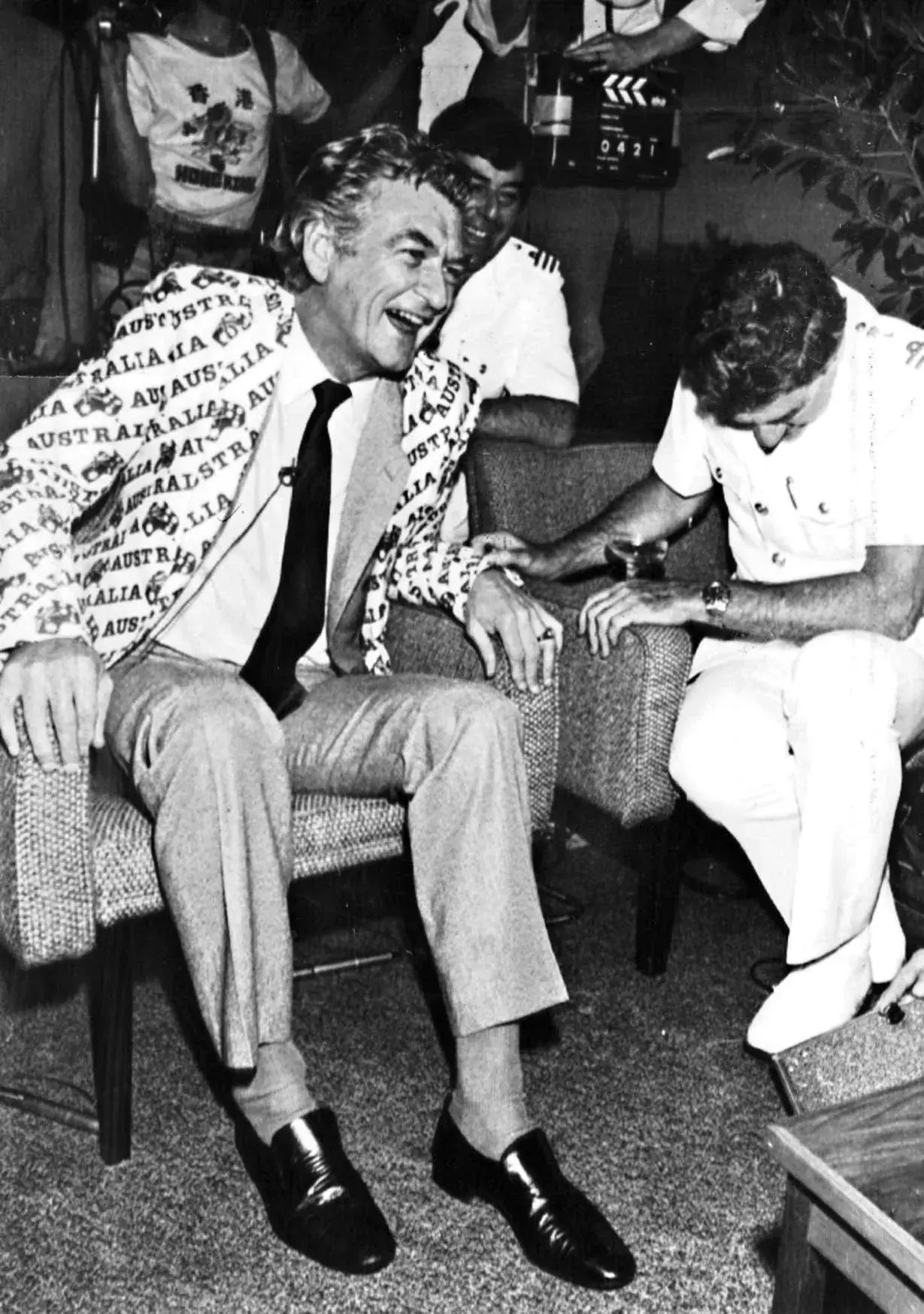BOB HAWKE
Companion of the Order of Australia (1979)
Bob Hawke became Australia's 23rd prime minister when the Labor Party won office, replacing the Liberal-National Party Coalition government led by Malcolm Fraser.
9 December 1929
Bordertown, South Australia
16 May 2019
Sydney, New South Wales
Hazel Hawke
Blanche d'Alpuget
Australian Labor Party
Photo: Ross Duncan/Newspix
About
Bob Hawke was an optimistic prime minister, driven by the certainty that he could negotiate solutions to intractable problems and communicate with people from all walks of life. He was also a pragmatist, generally willing to allow his ministers a 'light rein' and to change course as circumstances required.

Photo: Alan Pryke/Newspix
Hawke was a Rhodes Scholar in 1953 and graduated from Oxford University in 1956. He became well known as an advocate for the Australian Council of Trade Unions (ACTU) and, from the late 1950s, presented the annual cases for higher wages to the Conciliation and Arbitration Commission.
Bob Hawke was the ACTU President for a decade from 1970-1980, and President of the Labor Party from 1973-1978. In 1980 he was elected to the House of Representatives for the seat of Wills in Melbourne and in an unusual step, consistent with his background and public profile, was immediately appointed Shadow Minister for Industrial Relations, Employment and Youth.
He became leader of his party on the day a general election was called in March 1983 and won a landslide victory in that poll, the first of four election wins. He was Australia’s longest-serving Labor prime minister but, while his party was still in government, lost the leadership in December 1991. He resigned from Parliament two months later in February 1992.
MILESTONES
Economic Summit
A national summit meeting of leaders of business, industry, government and trade unions is held on 11 April 1983. The meeting discusses overall economic strategy, with a focus on the pressing issues of unemployment, inflation and wages.
Floating of the Australian dollar
The Australian dollar is floated on 9 December 1983 and the international market begins to set the exchange rate and value of the Australian dollar.
Medicare commences
Australia's second universal health insurance system, Medicare, is introduced on 1 February 1984 and becomes entrenched as a key part of health policy.
Pitjantjatjara people receive deeds to Uluru area
The deeds to Uluru were presented to traditional owners, the Pitjantjatjara people, by Governor-General Sir Ninian Stephen on 1 October 1984. Uluru is managed in a joint arrangement between the local Indigenous community and the National Parks and Wildlife Service.
Prices and Incomes Accord
The Accord is extended with unions moderating wage increases in return for tax cuts and superannuation entitlements.
Australia Act
The Australia Act passed on 2 March 1986 ended the inclusion into Australian law of British Acts of Parliament, and abolished remaining provisions for appeals from Australian courts to the Privy Council.
Twin pillars
Building on earlier moves towards superannuation for all workers, the Hawke Government's 1989 retirement income policy statement argues for 'twin pillars' of age pension and private superannuation.
Higher Education Contribution Scheme
The Higher Education Contribution Scheme (HECS) was introduced on 1 January 1989. The scheme was designed to shift part of the cost of higher education from the Commonwealth to students.
Asia-Pacific Economic Cooperation (APEC)
The twelve founding members of the APEC Forum meet in Canberra on 5 November 1989 for the first time.
Aboriginal and Torres Strait Islander Commission (ATSIC)
ATSIC is established on 5 March 1990 as a Commonwealth statutory authority. It aimed to give Indigenous people direct involvement in administering government programs and provided for the election of Indigenous representatives from regional land councils.
Gulf War
The deployment of an Australian naval contingent to the Persian Gulf begun in October 1990 , in response to Iraq’s invasion of Kuwait in what becomes the First Gulf War.
360° VIEW
Parliament
The Hawke Government set out to change Australia, having learnt from the successes and failures of past governments. Critical to this was the early decision to harness the full capacity of the public service, rather than holding it at arm's length from policy development.
Legislative and other successes included Medicare, Landcare, the Prices and Incomes Accord, the Family Assistance Scheme, the initiation of superannuation schemes for all workers, the formation of the Asia-Pacific Economic Cooperation forum (APEC) with 21 Pacific Rim Members, the deregulation of the financial sector, and the announcement that Advance Australia Fair would be the National Anthem.
Across the Hawke governments Indigenous affairs received considerable attention, as did the environment, while higher education was transformed and equal opportunity acquired a national emphasis, including through legislation against gender discrimination in workplaces.

Photo: News Ltd/Newspix

